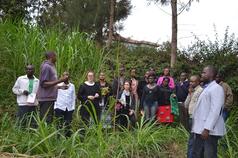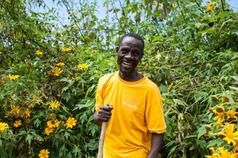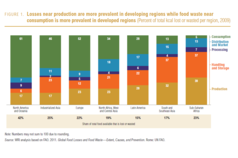The future of agriculture depends on attracting young, talented people who are prepared to balance risk and reward in order to deliver the healthy food we need in a way that gives them sufficient return for their labor and capital.
One of the biggest obstacles to financing smallholder farmers has been understanding who they are and – by extension – what their needs are. Without detailed data, it has sometimes been difficult for people sitting far away in donor programs to see the ways in which farmers are a heterogeneous and varied group.
One-third of all food produced in the world is lost or wasted from farm to fork. This level of inefficiency in the food system has tremendous economic, social, and environmental consequences. In September 2015, a historic window of opportunity opened to elevate the issue of food loss and waste reduction on the global agenda. At the United Nations General Assembly, countries of the world formally adopted a set of 17 Sustainable Development Goals (SDGs) as part of the 2030 Agenda for Sustainable Development. SDG 12 seeks to “ensure sustainable consumption and production patterns.”
Regardez cette interview avec Stéphanie Barrial du Forum Rural Mondial, qui représente la société civile et les ONG au niveau global dans le Comité directeur du GFAR. Lors de la récente réunion du Comité directeur du 8 au 9 février 2017, nous avons profité de l'occasion pour poser à Stéphanie les questions suivantes:
1) Selon vous, quelles seront les clés de succès qui vous permettront de représenter et impliquer efficacement les groupes de votre secteur et de les amener à s'engager avec les autres groupes du GFAR pour obtenir des résultats tangibles et des changements réels?
Vea esta entrevista con Maria Rodriguez de FORAGRO, que representa a la región de América Latina y el Caribe en el Comité Directivo del GFAR. Durante la reciente reunión del Comité Directivo del 8 al 9 de febrero de 2017, aprovechamos la oportunidad para pedirle a María sus ideas para acciones que le gustaría ayudar a su electorado a realizar en los próximos años.
The GCARD3 Global Event, held 6th-8th April 2016 in South Africa, was the third milestone in the GCARD process—an inclusive, participatory process providing an opportunity to shape a new agenda for agricultural research for development and new pathways for uptake.
Watch this interview with Mr Nana Osei Bonsu of Private Enterprise Federation, Ghana, who represents Private Sector at the local level in the GFAR Steering Committee. During the recent meeting of the Steering Committee on 8-9 February 2017, Nana brought a business perspective to the dialogue, reminding that farmers need to be enabled to make their work profitable and scalable. His takeaway message is that "collaboration is key" to sharing our knowledge of what works and what needs to be improved in agriculture and food systems.
Watch this interview with Keron Bascombe, representative of the Youth Constituency at the local level in the GFAR Steering Committee. During the recent meeting of the Steering Committee on 8-9 February 2017, Keron stressed the need to overcome the limitations that smaller organizations can face by joining together in the larger networks of GFAR. Keron strongly believes that in order to engage in collective actions, we all must ensure that research and innovation are driven by the demand of those at the grassroots level of agriculture, especially the youth.
Watch this interview with Ms Rula Al-Khateeb of the Palestinian Farmers' Union who represents Farmer and Agricultural Workers at the local level in the GFAR Steering Committee. During the recent meeting of the Steering Committee on 8-9 February 2017, Rula shared with us the particular challenges in her region of the world and how she sees involvement in GFAR as a clear way to improve the productivity and livelihoods of farmers. This will happen through mobilization of different sectors to build a strong network within the network of GFAR.



